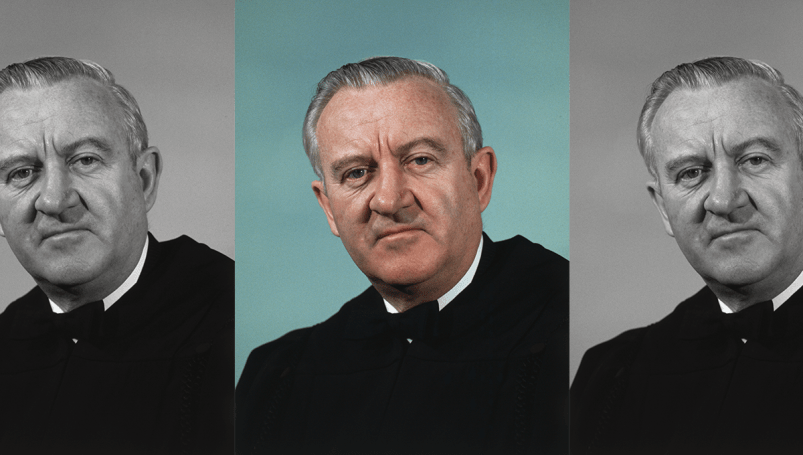This article is part of TPM Cafe, TPM’s home for opinion and news analysis.
Like many, I spent Wednesday, July 17 reflecting on the wonderful year I spent clerking for Justice John Paul Stevens. As others have said, he was a fine man — brilliant but unassuming, decisive but persuadable, sure of his views but gentle in expressing them, and guided through it all by a moral compass sorely lacking in so many of today’s public figures.
When he first offered me the clerkship, I pored over his past opinions, as well as any data I could find about his role on the Court. I quickly realized it would be a busy year, because Justice Stevens wrote many more concurring and dissenting opinions than his fellow Justices. (This chart from SCOTUSblog’s excellent Stat Pack OTO9 illustrates that fact for the Justice’s last five years on the bench, October terms 2005-2009.) At the time, I assumed the Justice often wrote separately because he disagreed with his colleagues more often than they disagreed with each other — perhaps a concrete manifestation of his widely reported (but probably exaggerated) shift from the center-right to the left flank of the Court over his 34 years there. During my clerkship year, however, I realized that his habit of writing separately reflected his judicial philosophy more than his ideology.
Justice Stevens believed to his core in the slow evolution of the law, and the central role of courts in guiding that evolution — in common law cases, when courts must apply existing doctrines to novel situations; in statutory cases, when courts must either interpret ambiguous congressional language or review agencies’ interpretive efforts; and even in Constitutional cases, when courts must consider anew the boundaries of historic rights in light of modern mores.
As Justice Stevens recognized, that evolutionary process, like biological evolution, is inherently episodic. Sometimes there is a long period of stasis and then a sudden leap as judicial views catch up with the times. And also like biological evolution, legal evolution depends on a buildup of variability (DNA mutations, in the biological process; differences of opinion, in the legal one) to provide fodder for lasting change when the circumstances demand it.
I think that is why Justice Stevens often wrote separately: He believed it was important to record for posterity the subtle differences between his legal reasoning and that of the majority, or to fully explicate all the grounds for his dissenting vote. Ever confident and ever the optimist, he was creating evolutionary fodder for a time when the Court’s views might catch up with his own.
Amanda Cohen Leiter is a Professor of Law and the Director of the Program on Environmental and Energy Law at American University’s Washington College of Law. From August 2015 – January 2017, Leiter served as a Deputy Assistant Secretary for Land and Minerals Management at the U.S. Department of the Interior, advancing Department priorities related to oil and gas and renewable energy development on public lands. Professor Leiter clerked for Judge Nancy Gertner of the Federal District Court for the District of Massachusetts; for Judge David Tatel of the U.S. Court of Appeals for the D.C. Circuit; and for Supreme Court Justice John Paul Stevens.







Haha, LibTards. Trump GeTs aNother supreMe court piCK!!
Insufferably dullheaded as you are, this news will likely shock you: Justice Stevens retired from the bench in 2010 and was replaced by Elena Kagan.
@theghostofeustacetilley is a much-beloved, snarkalicious, long-time TPM member, who provides much welcome comic relief in These Hear Threadz and undoubtedly knows when Justice Stevens retired. In other words, please send your snark-o-meter in for recalibration.
Oh, did I just wander into a frat party?
I’ve been around tpm since the beginning, coming and going as the sophistication of the effort has waxed and waned, and I have never seen anything posted by Eustace; and thank god for that because if his posting above is evidence of his contribution to comic relief, then, well, yawn.
President Carter did nominated Breyer and RBG to the court of appeals but never had a shot at a Supreme Court nomination. In theory, Brennan would have been an option, him being on the Court over twenty years, but so it goes. Stevens would have been a fine Carter choice.
Early on, Stevens was a moderate. On that front, I again would state my belief Merrick Garland would have been a fine justice. He would have been a moderate that would not join some more liberal opinions. But, he would have been a good moderate choice. In another era, he would have been seen in this light and confirmed.